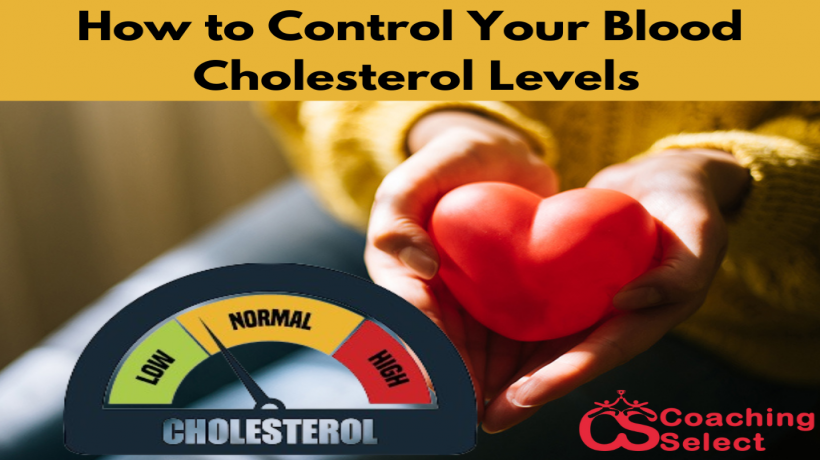Mastering the Art of lowering blood Cholesterol
Lowering blood cholesterol is very necessary for a healthy heart. Here are some of the tips to keep low blood cholesterol.
December 02, 2023
Career Expert & Blogger

Introduction
Maintaining healthy cholesterol levels is crucial for overall well-being and cardiovascular health. Heart disease and other cardiovascular problems might arise as a result of elevated blood cholesterol levels. There are a number of dietary and lifestyle adjustments that can help naturally decrease cholesterol levels. We'll look at practical methods in this blog to lower blood cholesterol and encourage heart-healthy living.
Understanding Cholesterol
Understanding the two major forms of cholesterol—low-density lipoprotein (LDL) and high-density lipoprotein (HDL)—is crucial before attempting any cholesterol-lowering measures. Because elevated levels of LDL cholesterol can cause plaque to accumulate in arteries and raise the risk of heart disease, it is sometimes referred to as "bad" cholesterol. However HDL cholesterol is regarded as "good" cholesterol.
Adopt a Heart-Healthy Diet
Making thoughtful food choices is one of the best strategies to reduce cholesterol. Here are some food suggestions:
a). Select Good Fats: Restrict your intake of saturated and trans fats, which are present in red meat, processed meals, and fried foods, and choose unsaturated fats like those found in almonds, avocados, and olive oil.
b). Consume More Omega-3 Fatty Acids: Rich in omega-3 fatty acids, which can help decrease cholesterol, include fatty fish like salmon, mackerel, and trout in your diet.
c). Increase Your Consumption of Soluble Fibre: Foods high in soluble fibre, such fruits, vegetables, barley, and oats, can help reduce LDL cholesterol.
d). Limit your dietary cholesterol: This can be done by consuming fewer items high in cholesterol, such as organ meats, egg yolks, and full-fat dairy products.
Maintain a Healthy Weight
Elevated cholesterol levels might be a result of being fat or overweight. Healthy eating and regular exercise combined with weight loss can have a good effect on cholesterol levels and cardiovascular health in general.
Regular Physical Activity
Regular exercise is essential for reducing cholesterol and preserving heart health. Aim for 150 minutes or more per week of aerobic activity at a moderate to high level or 75 minutes or more at a high intensity. Exercises like swimming, cycling, and brisk walking are great options.
Quit Smoking
Smoking decreases HDL cholesterol and destroys blood arteries. Raising HDL cholesterol levels and enhancing general cardiovascular health both greatly benefit from quitting smoking.
Moderate Alcohol Consumption
While there may be some cardiovascular advantages to moderate alcohol use, excessive drinking can raise cholesterol and cause other health problems. If you decide to drink, limit yourself to no more than one drink for women and two for men every day.
Maintain Hydration
Hydration is beneficial to cardiovascular health as well as general wellness. It contributes to the best possible cardiac function by assisting the body in eliminating impurities and facilitating the flow of nutrients.
Conclusion
Lowering blood cholesterol is an active step towards living a longer and healthier life. You may improve your cholesterol profile by changing your lifestyle, eating a heart-healthy diet, staying at a healthy weight, and exercising frequently. Before making major dietary or activity changes, always get medical advice, especially if you have pre-existing medical issues or are on medication. Keep in mind that general cardiovascular health and cholesterol levels can be significantly improved with modest, regular modifications.



